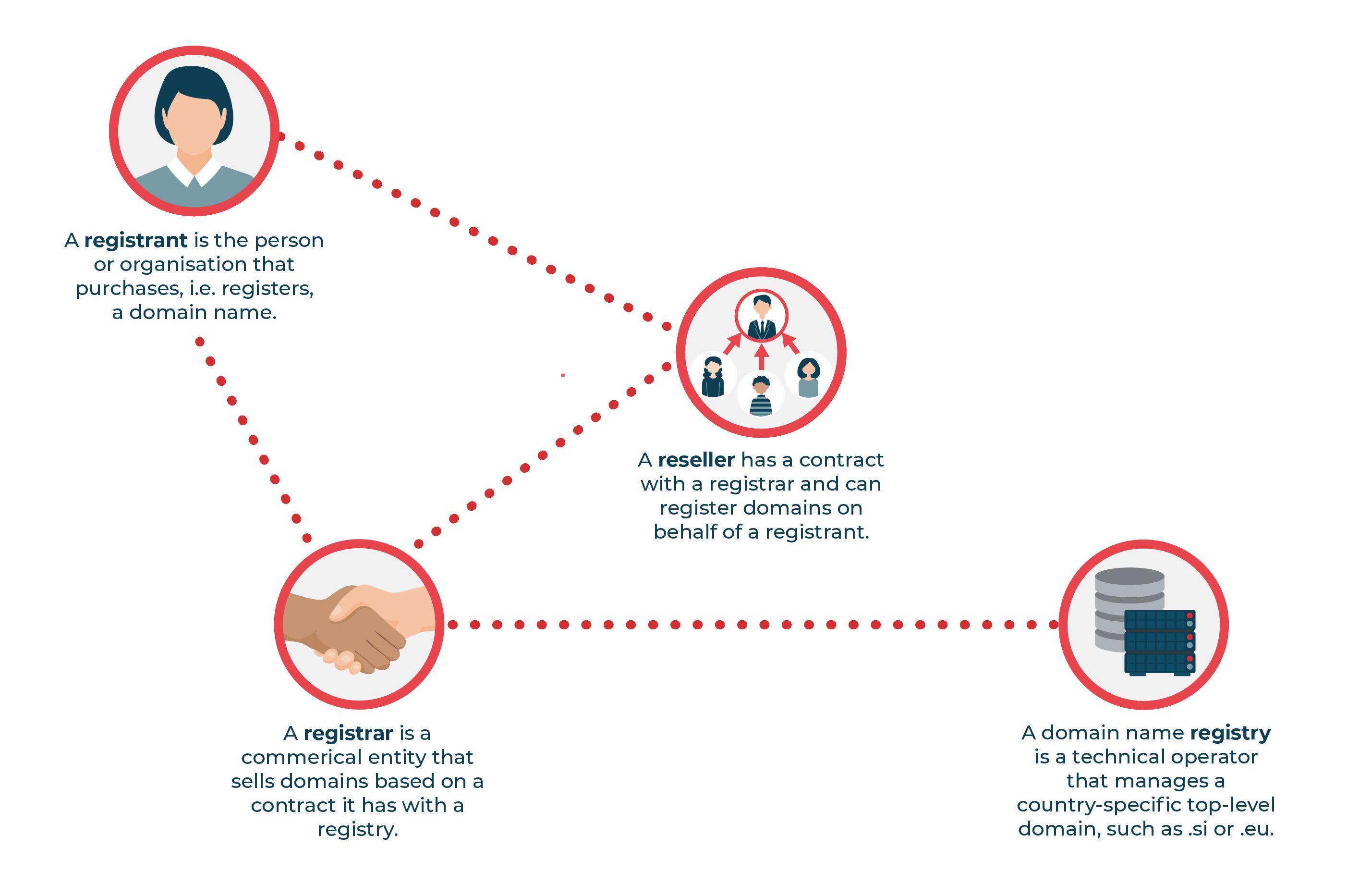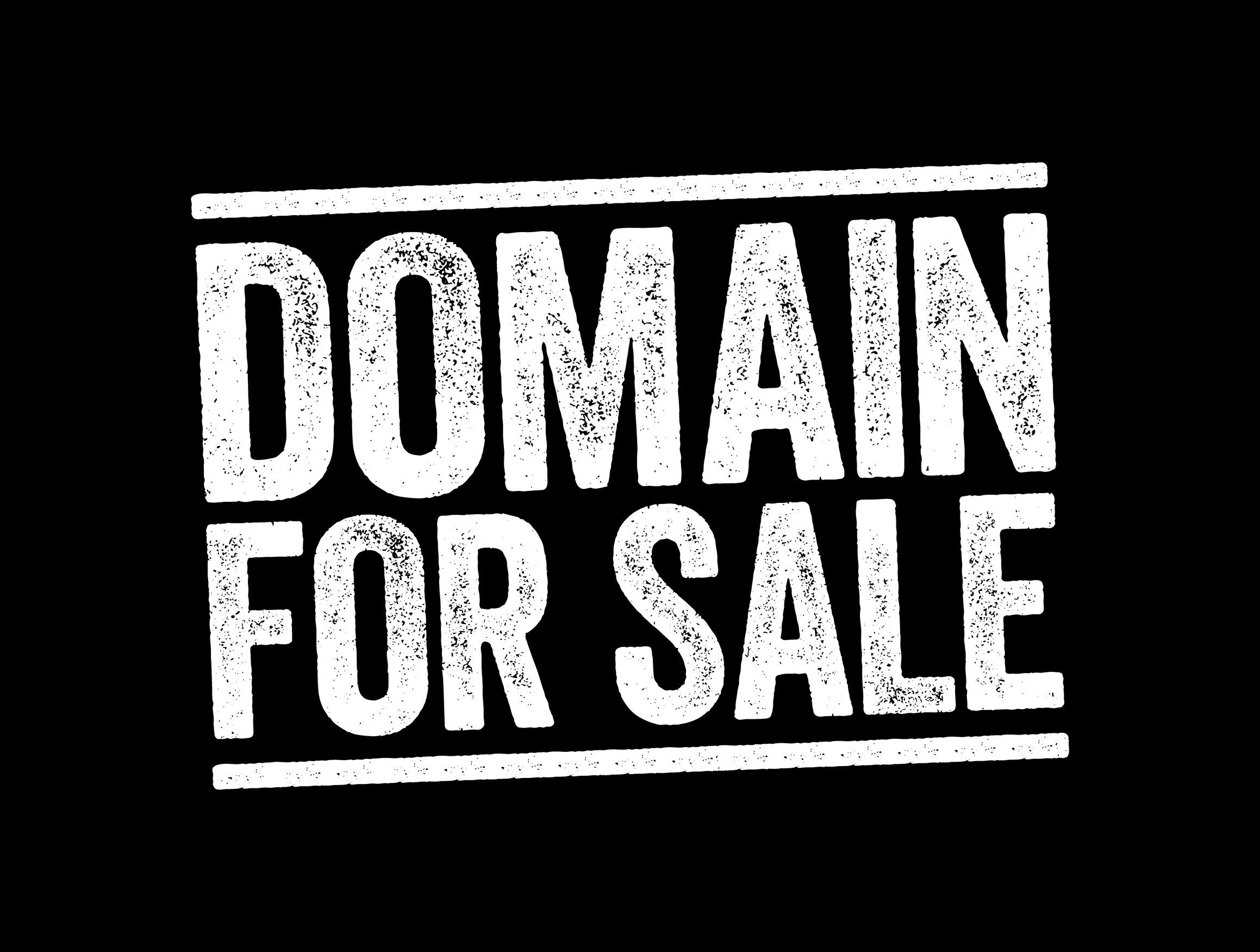Table of Contents
- Understanding the Market for Registered Domains
- Evaluating the Value of Your Domain Name
- Effective Strategies for Selling Your Domain Online
- Navigating Legal Considerations in Domain Sales
- Marketing Techniques to Attract Potential Buyers
- Q&A
- In Conclusion


Understanding the Market for Registered Domains
When you dive into the world of selling registered domains, it is essential to grasp the factors that drive market dynamics. The demand for domain names fluctuates based on various elements, including brand trends, emerging technologies, and the evolving needs of businesses and individuals seeking to establish an online presence. Buyers are increasingly searching for domains that reflect their brand identity while being easy to remember and spell. Hence, having a keen understanding of market trends is crucial in positioning your domains competitively.
One key aspect is the categorization of domain names. They can range from generic top-level domains (gTLDs) such as .com, .net, and .org to newer, more specialized options like .tech or .design. Each category carries its own set of value and market interest. Notably, premium domains — often short, keyword-rich names — tend to command higher prices due to their inherent value in search engine optimization (SEO). As a seller, recognizing these distinctions allows you to better target potential buyers and market your domains more effectively.
It’s also beneficial to keep track of the pricing trends within the domain market. Tools and resources like domain auctions, brokers, and valuation services can provide insights into what similar domains are selling for and can help you set competitive prices. For instance, referencing recent sales can give a clearer picture of what buyers are willing to pay. An understanding of these trends will enable you to identify the right time to sell and maximize your investment return. Consider making a simple comparison table to visualize current prices:
| Domain Name | Category | Recent Sale Price |
|---|---|---|
| example.com | gTLD | $15,000 |
| yourbrand.tech | gTLD | $3,500 |
| bestdesigns.com | gTLD | $20,000 |


Evaluating the Value of Your Domain Name
When you’re considering selling your registered domain, it’s essential to have a clear understanding of its true worth. The value of a domain name can vary significantly based on several key factors. Length plays a crucial role; shorter domain names are generally more desirable, as they are easier to remember and type. Additionally, a domain with keywords relevant to popular industries can attract higher bids, making it vital to evaluate how well your domain aligns with current search trends.
Another aspect to consider is the extension of your domain name. While .com domains often fetch the highest prices due to their established trustworthiness and familiarity, other extensions like .net or .io can also be valuable, especially in niche markets. A growing trend is the increasing interest in country code domains, such as .uk or .ca, which can be highly valuable for local businesses. You can assess where your domain fits within these categories to better gauge its market potential.
Lastly, it’s beneficial to look at the history and reputation of the domain. Domains previously used for reputable businesses or that have strong backlinks can command higher prices. Consider using tools to analyze factors like traffic data, backlink quality, and past ownership to enrich your evaluation. Here’s a simplified table to summarize some key aspects to keep in mind during your evaluation:
| Factor | Impact on Value |
|---|---|
| Length | Shorter domains are more valuable |
| Keywords | Relevant, searched keywords can increase value |
| Extension | .com tends to be most valuable; country codes can vary |
| History | Positive history can enhance valuation |


Effective Strategies for Selling Your Domain Online
When it comes to selling your domain online, having a clear plan and strategic approach can make all the difference. First, ensure that your domain is attractive to potential buyers by emphasizing its uniqueness and relevance. A domain name that relates closely to a business or niche can appeal to buyers looking for a strong online presence. Consider crafting a compelling description that highlights its potential uses, as well as its SEO benefits and brandability.
Another effective strategy is to choose the right selling platform. Many options exist, from specialized domain marketplaces to general selling sites. Here are a few popular platforms you might consider:
- GoDaddy Auctions: Known for its extensive reach and established reputation.
- Namecheap Marketplace: Provides an easy-to-navigate interface for buyers and sellers.
- Flippa: Great for selling domains alongside websites and apps.
- Sedo: A global platform that connects sellers with buyers from all over the world.
Pricing your domain competitively is crucial in attracting interest. Conduct thorough research to understand market trends and similar domain sales. Create a pricing table to present the information clearly:
| Domain Name | Similar Sales Price | Estimated Value |
|---|---|---|
| exampleDomain.com | $1000 | $1200 |
| bestBranding.net | $800 | $900 |
| topProduct.org | $1500 | $1700 |
consider promoting your domain beyond listing it for sale. Utilize social media platforms, forums, and online groups relevant to your domain’s niche to reach a wider audience. Sharing posts showcasing your domain, detailing its potential, or even its historical significance can create buzz. Engaging with potential buyers can also help establish a connection that encourages a sale.


Navigating Legal Considerations in Domain Sales
When engaging in domain sales, understanding the intricate legal landscape is crucial for both sellers and buyers. Domain names can be considered intellectual property, which means they are subject to various legal frameworks. One of the primary considerations is ensuring that the domain you are selling does not infringe on someone else’s trademark. Before proceeding with a sale, it is wise to conduct a thorough trademark search to avoid potential legal disputes. This can prevent complications that may arise from domain squatting or other claims against your ownership. Another essential aspect is the drafting of a sale agreement that outlines the terms and conditions of the sale. Such an agreement should include specific details such as the purchase price, transfer process, and responsibilities of both parties post-sale. It is advisable to consult a legal professional to ensure that the agreement is sound and covers any potential liabilities. A well-structured agreement can protect both the seller and the buyer, fostering a smooth transaction and minimizing the risk of misunderstandings. it’s important to be aware of the transfer process and associated regulations. Each domain registrar has its own policies regarding domain transfers, which can vary significantly. Following the correct procedure for transferring ownership is paramount, and sellers should ensure that all relevant accounts and authorizations are correctly managed. Keeping track of registration and renewal dates also helps in upholding the legal standing of the domain during the sales process.| Consideration | Description |
|---|---|
| Trademark Search | Conduct a search to ensure no infringement on existing trademarks. |
| Sale Agreement | Draft a clear contract outlining the sale terms to protect both parties. |
| Transfer Process | Follow the registrar’s policies to ensure smooth ownership transfer. |
Marketing Techniques to Attract Potential Buyers
To effectively draw in potential buyers when selling registered domains, leveraging targeted online advertising can drastically enhance your visibility. Utilize platforms such as Google Ads and Facebook Ads, tailoring your campaigns to reach specific demographics and interests aligned with your domain’s niche. Here are some tips to maximize ad performance:
- Keyword Focus: Research and select relevant keywords that are likely to be searched by your target audience.
- Compelling Ad Copy: Craft concise and persuasive copy that highlights the unique benefits of the domain.
- Landing Pages: Direct clicks to well-designed landing pages that provide additional details and encourage quick action.
In addition to online advertising, social media engagement can play a crucial role in attracting interest. Create accounts on platforms frequented by your target audience and share valuable content related to your domain. Regularly participate in conversations, answer questions, and showcase real-world applications of the domain, establishing credibility and authority in the field. Here are some effective strategies for social media:
- Consistent Posting: Maintain a regular posting schedule to keep your audience engaged.
- Visual Content: Use eye-catching images and videos to showcase your domain’s potential.
- Networking: Collaborate with influencers or other content creators to reach a wider audience.
consider implementing email marketing as a tool to nurture leads. Building a targeted email list allows for personalized outreach and fosters a direct line of communication. Create an engaging newsletter that includes insights on market trends, tips for utilizing the domain effectively, and exclusive offers. Here’s a simple framework for structuring an effective email newsletter:
| Section | Description |
|---|---|
| Introduction | Start with a warm greeting and a brief overview of recent developments. |
| Domain Insights | Share valuable statistics or trends about the domain market relevant to your audience. |
| Exclusive Offers | Present special offers or discounts to incentivize purchases. |
| Call to Action | Encourage readers to act quickly, providing clear links to view and purchase the domain. |
Q&A
Q&A: Selling Registered Domains
Q1: What is a registered domain, and why would someone want to sell it? A: A registered domain is a unique web address that you own, typically purchased through a domain registrar. People sell registered domains for various reasons, including generating income, capitalizing on market demand, or shifting focus to different online projects. Some may find that their originally registered domain no longer aligns with their brand or business goals, making it a prime candidate for sale.Q2: How do I determine the value of my registered domain? A: The value of a domain can depend on various factors, including its length, keyword relevance, extension (.com, .net, etc.), and overall market trends. Tools like Estibot or GoDaddy Appraisal can provide an estimated value based on algorithms and market data. Additionally, look at comparable sales and consider the sentiment and demand within your niche to gauge your domain’s worth accurately.
Q3: What are some effective strategies for selling a registered domain? A: To effectively sell your registered domain, consider these strategies:
- Create a Landing Page: Showcase your domain with a simple page highlighting its potential uses, making it appealing to buyers.
- List on Marketplaces: Use popular platforms like Sedo, Flippa, or GoDaddy Auctions to reach a wide audience.
- Social Media Promotion: Share your domain sale on social media platforms, emphasizing its value to attract interest.
- Network within your Niche: Engage with potential buyers in forums or communities relevant to your domain’s topic.
Q4: How do I transfer ownership of a domain once it’s sold? A: Transferring ownership of a domain involves a few essential steps:
- Unlock the Domain: Log in to your registrar account and unlock the domain if it is currently locked.
- Obtain an Authorization Code: This code will be essential for the buyer to initiate the transfer.
- Provide the Buyer with the Details: Share the authorization code and any necessary transfer instructions.
- Confirm the Transfer: Ensure both you and the buyer complete any required steps with the domain registrar to finalize the transfer.
Q5: What legal considerations should I keep in mind when selling a domain? A: When selling a domain, consider the following legal aspects:
- Intellectual Property: Ensure that your domain does not infringe on trademarks. Conduct thorough research to avoid legal disputes.
- Sale Agreement: Draft a simple agreement outlining the terms of the sale, including payment details and transfer conditions.
- Taxes: Be aware that selling a domain may have tax implications, so consult with a tax professional to understand your obligations.
Q6: What are possible risks associated with selling a registered domain? A: There are a few risks to consider when selling a domain:
- Scams and Fraud: Be cautious of potential scams. Use reputable marketplaces that offer secure payment methods.
- Imposter Buyers: Some buyers may attempt to negotiate unfairly or waste your time. Verify their intent before proceeding.
- Market Fluctuations: The domain market can be volatile; your registered domain may fluctuate in value, affecting your potential profit.
Q7: Can I sell a domain that I just registered? A: Yes, you can sell a newly registered domain. However, keep in mind that some buyers might prefer more established domains with existing traffic. Additionally, be aware of any registrar policies that may apply to the duration of ownership before a domain can be transferred.
Q8: What’s the best way to promote my domain for sale? A: To effectively promote your domain for sale, leverage a mix of online marketing strategies:
- SEO Optimization: Use relevant keywords that potential buyers might search for in your domain listing.
- Content Marketing: Write blog posts that highlight the benefits or potential uses of your domain.
- Email Marketing: Reach out to businesses or individuals who may benefit from your domain directly through email pitches.
- Networking: Attend industry events or online webinars where you can discuss your domain with interested parties.

